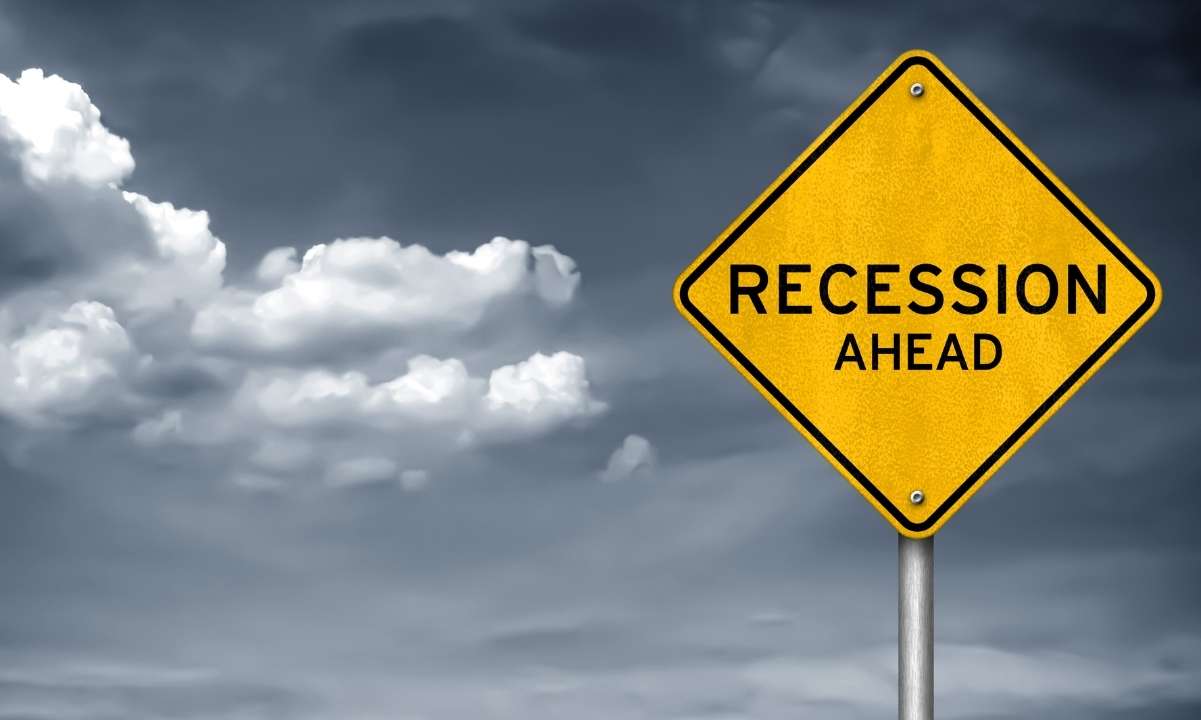

U.S. Treasury yields edged up Monday as markets focus on inflation woes and recession risk.
All eyes are on a two-day Federal Reserve policy meeting that concluded this Wednesday, and the central authority hiked the interest rates by 75 basis points, as many expected.
A slew of tech earnings reports this week and the latest GDP figures, which showed the second consecutive quarter with negative GPD percentages, gave analysts a better gauge. Meanwhile, many warn the U.S. may already be in a recession, although the authorities are still denying it.
A 2022 Recession vs. The 2020 Pandemic Crash
The Commerce Department defines a recession as “a significant decline in economic activity spread across the economy and lasts more than a few months.”
GDP declined in Quarter 1 of this year on pace for an annual decrease of 1.6%. Q2 2022 ended with a decline of 0.9%. The Fed has suggested it might be possible to pull off a somewhat “soft landing.” But after nearly three years of easy dollar loans, the FOMC may not be able to outmaneuver an economic crunch.
ADVERTISEMENT
Cryptocurrency has gone through varying correlation regimes with stocks. But is there any correlation, inverse or positive, between crypto and GDP growth? It’s difficult to be sure. That’s because, in the industry’s entire short history, there has only been one very brief recession. That was in 2020 at the height of the pandemic and lockdowns.
During that time, from February through April 2020, bitcoin’s price fell markedly along with other asset classes. But by July, it had recovered its losses. After that, it skyrocketed by over triple-digit percentages until March of 2021. By then, the crypto exchange rate of bitcoin to USD exceeded $60,000 for one bitcoin.
This time around, other factors than GDP on the price of bitcoin are very different from 2020. The extreme worldwide fear, uncertainty, and doubt at the start of the coronavirus pandemic are behind us. Cash is king during times of broad economic uncertainty about the future.
While the near future may have a recession, inflation, or both in-store, at least the threats and weaknesses on the horizon are something businesses, and markets understand. It’s a far cry from the global disruption of the coronavirus pandemic.
Crypto May Benefit From Recession Like Fortune 500
Cryptocurrency markets, like all markets, move with the ebb and flow of the U.S. federal funds rate. As investing extraordinaire Warren Buffett has said:
“Interest rates are to asset prices what gravity is to the apple. When there are low interest rates, there is a very low gravitational pull on asset prices.”
And:
“The most important item over time in valuation is obviously interest rates.”
It would be surprising, however, if analysts were able to demonstrate a connection between crypto prices and the total sales of every business in every sector in the country. Even designing a rigorous methodology to answer that question would be a quixotic undertaking.
But one thing can be said for sure about economic downturns and entrepreneurial ventures like all of those powering the cryptocurrency industry today. Recessions are fertile grounds for startups that go on to become some of the largest and most stable value creators in the economy.
In 2008 more than half of the companies among the Fortune 500 had gotten their start during a previous recession. They also created less volatile, more secure jobs than the broader economy.
That’s why the Kauffman Foundation proclaimed during the Great Recession by mid-2009 that: The economic future just happened.
Binance Free $100 (Exclusive): Use this link to register and receive $100 free and 10% off fees on Binance Futures first month (terms).
PrimeXBT Special Offer: Use this link to register & enter POTATO50 code to receive up to $7,000 on your deposits.
The post appeared first on CryptoPotato






